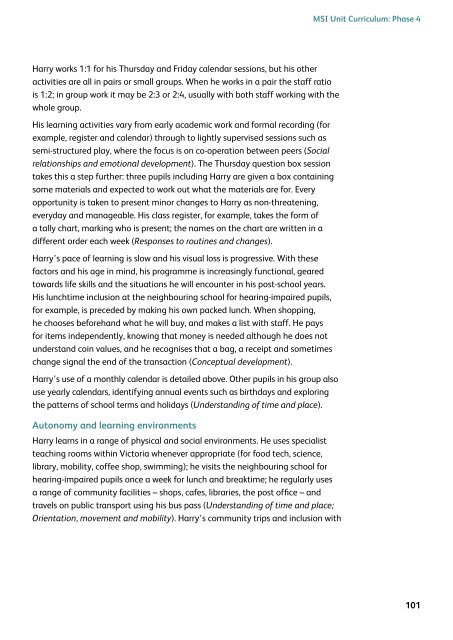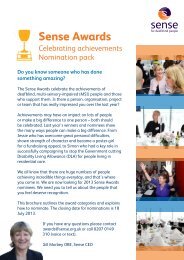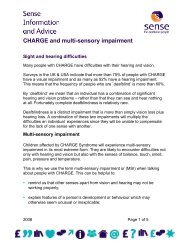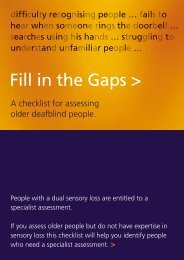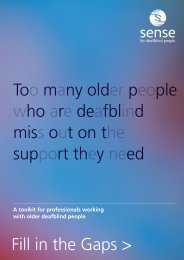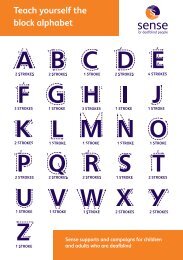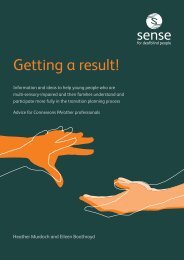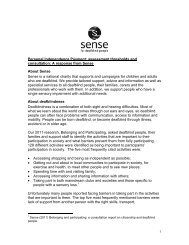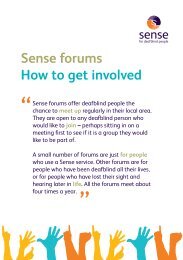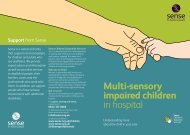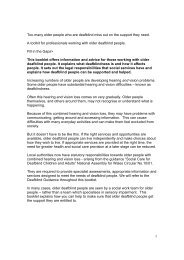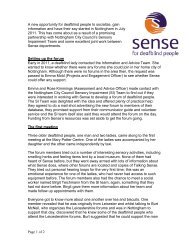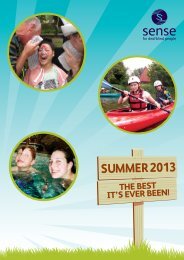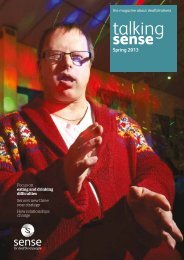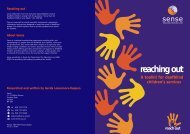MSI Unit Curriculum - Sense
MSI Unit Curriculum - Sense
MSI Unit Curriculum - Sense
Create successful ePaper yourself
Turn your PDF publications into a flip-book with our unique Google optimized e-Paper software.
<strong>MSI</strong> <strong>Unit</strong> <strong>Curriculum</strong>: Phase 4Harry works 1:1 for his Thursday and Friday calendar sessions, but his otheractivities are all in pairs or small groups. When he works in a pair the staff ratiois 1:2; in group work it may be 2:3 or 2:4, usually with both staff working with thewhole group.His learning activities vary from early academic work and formal recording (forexample, register and calendar) through to lightly supervised sessions such assemi-structured play, where the focus is on co-operation between peers (Socialrelationships and emotional development). The Thursday question box sessiontakes this a step further: three pupils including Harry are given a box containingsome materials and expected to work out what the materials are for. Everyopportunity is taken to present minor changes to Harry as non-threatening,everyday and manageable. His class register, for example, takes the form ofa tally chart, marking who is present; the names on the chart are written in adifferent order each week (Responses to routines and changes).Harry’s pace of learning is slow and his visual loss is progressive. With thesefactors and his age in mind, his programme is increasingly functional, gearedtowards life skills and the situations he will encounter in his post-school years.His lunchtime inclusion at the neighbouring school for hearing-impaired pupils,for example, is preceded by making his own packed lunch. When shopping,he chooses beforehand what he will buy, and makes a list with staff. He paysfor items independently, knowing that money is needed although he does notunderstand coin values, and he recognises that a bag, a receipt and sometimeschange signal the end of the transaction (Conceptual development).Harry’s use of a monthly calendar is detailed above. Other pupils in his group alsouse yearly calendars, identifying annual events such as birthdays and exploringthe patterns of school terms and holidays (Understanding of time and place).Autonomy and learning environmentsHarry learns in a range of physical and social environments. He uses specialistteaching rooms within Victoria whenever appropriate (for food tech, science,library, mobility, coffee shop, swimming); he visits the neighbouring school forhearing-impaired pupils once a week for lunch and breaktime; he regularly usesa range of community facilities – shops, cafes, libraries, the post office – andtravels on public transport using his bus pass (Understanding of time and place;Orientation, movement and mobility). Harry’s community trips and inclusion with101


